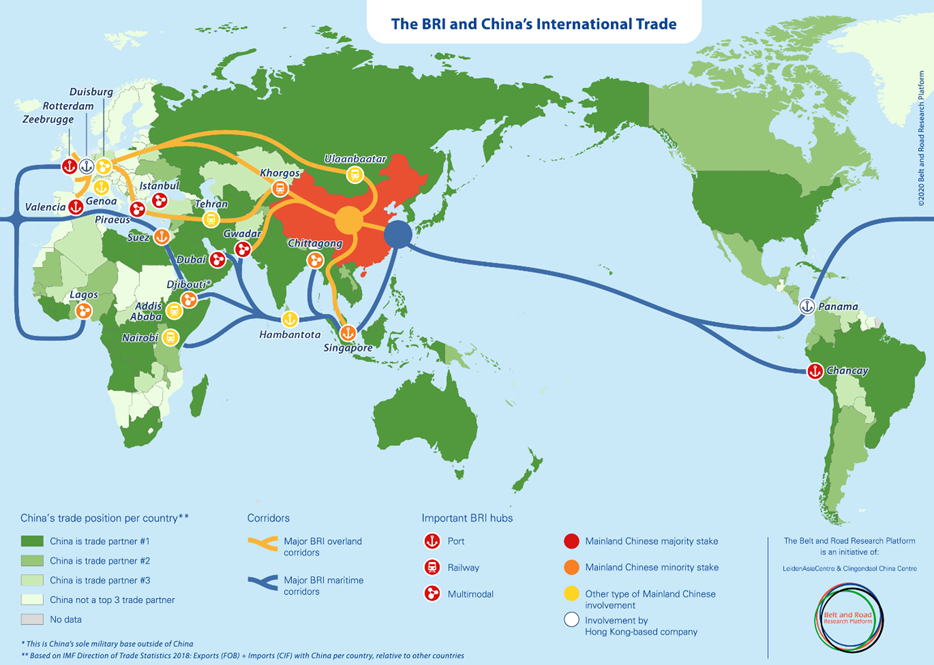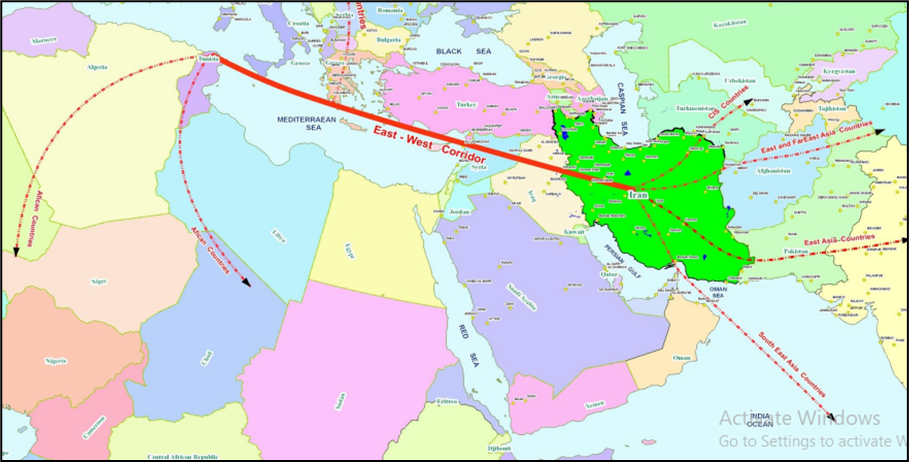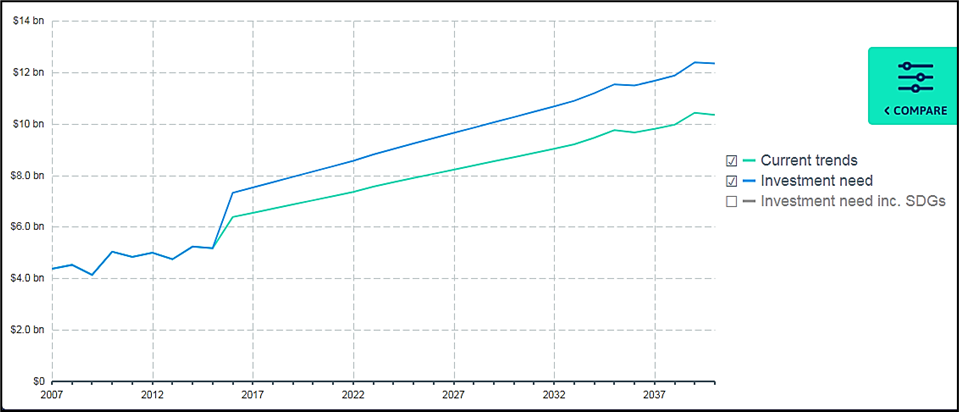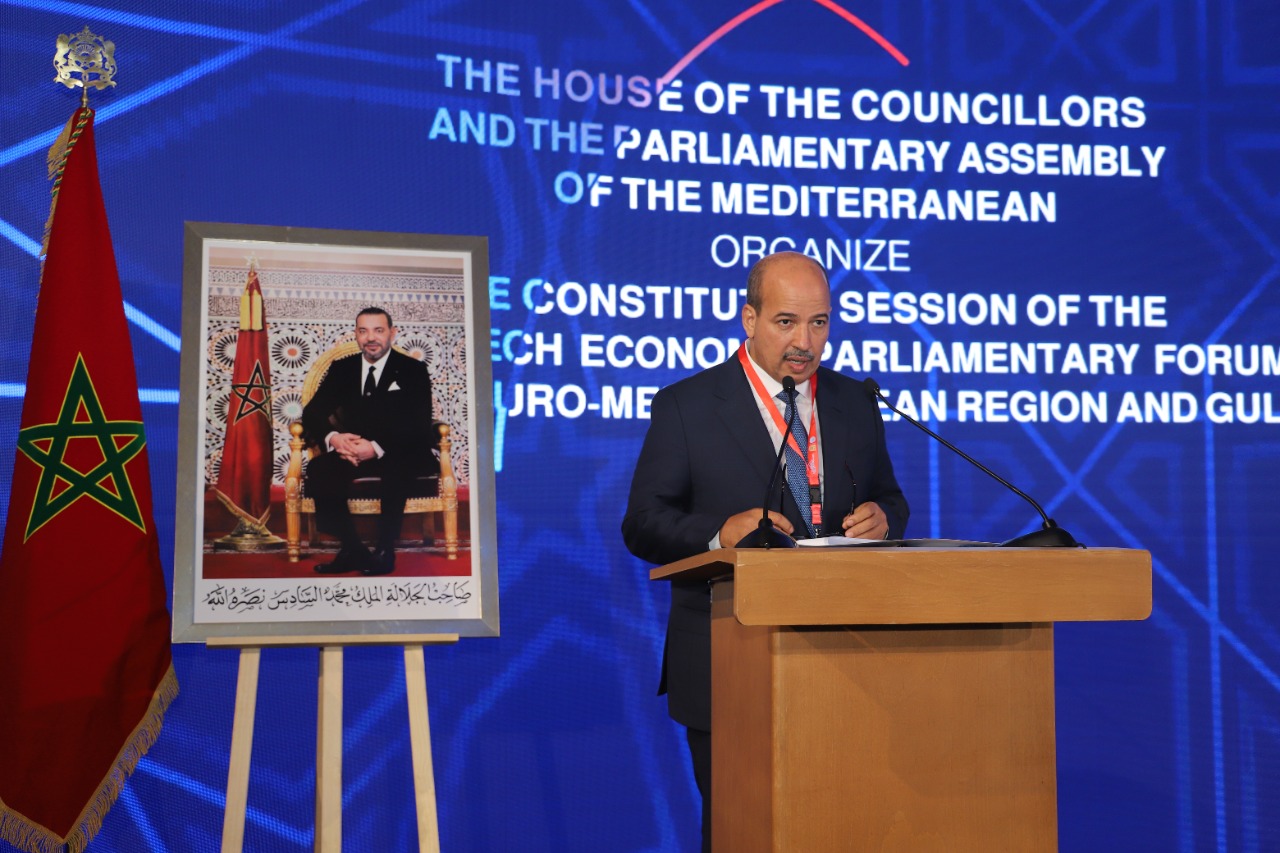Morocco is seeking to establishing, with European support, a new framework to enhance cooperation between the Euro-Mediterranean bloc, and the Arab Gulf bloc. This cooperation across blocs will serve Morocco’s economic as well as political interests: enhancing trade, providing for financial flows, and bolstering Its regional and international standing.
The Parliamentary Assembly of the Mediterranean (PAM) and the Moroccan Council of Advisors held the founding session of the Euro-Mediterranean and Gulf Economic Forum on 7 and 8 December, in Marrakesh. The President of the Moroccan Council of Advisors, ElNaam Meyara ,in his opening address to the Forum, stressed the need to strengthen relations between the Gulf and Euro-Mediterranean states through a new entity that is primarily concerned with economic issues such as food and energy security, trade, and joint investments, in addition to combating the financing of terrorism, in order to enhance peace, security and stability in the region.
Moroccan Vision
Meyara put forth a vision for a new institutional entity that could gradually become an active regional organization. Its activity could first be launched in the form of a joint think tank, which subsequently could be provided with the necessary financial and human resources to allow it to become a sustainable and institutional source of ideas on the means of cooperation among the Forum’s member states. The aim would be the establishment of an innovative format for regional economic cooperation and the exchange of legislative, commercial and financial expertise. Meyara suggested the following:
– Launch of a “mechanism for strategic economic dialogue” between the Gulf and Euro-Mediterranean countries to revive the “Barcelona” initiative, strengthen Mediterranean cooperation, as well as strengthening relations between the Gulf States and Europe.
– Resuming negotiations for the establishment of a free trade zone between Europe and the Gulf, that could be expanded in the future to include the countries south of the Mediterranean. The development of trade between the two regions would open up new prospects, including taking advantage of the free trade zone on the African continent, as well as the free trade zone of Asia and the Pacific, and Latin America’s Southern Common Market Mercosur.
– Establishing a “Euro-Mediterranean -Gulf Investment Fund”, with its resources directed towards strengthening logistical connections across regions, especially the triangle of the Moroccan port of Tangiers, the Italian port of Genoa, and the Emirati port of Jebel Ali.
– Encouraging the onshoring of economic activities in order to create a Euro-Mediterranean- Gulf production chain, that will add value and economic opportunities to all the participating countries.
Objectives
Morocco’s ambition to establish a new economic bloc highlights the fact that the current regional blocs of which Morocco is a member, have not lived up to expectations. For example, the Maghreb Union, launched in 1991, failed to realize the dream of realizing a Maghreb Common Market in 2000, owing to tensions between member states, particularly between Morocco and Algeria, and the lack of willingness to liberalize trade between them. The Barcelona Process launched in 1995, has not made significant progress in the areas of the economic, political and security partnership between the European bloc (15 states) and the Southern Mediterranean bloc (12 states). For example, a free trade zone should have been established between the two parties in 2010, which has not been achieved, and thus the volume of trade between the two sides never reached its true potential. Trade between the European Union’s 15 states with the Maghreb bloc has not improved as hoped (see Table 1).
The volume of trade between the countries which signed the Barcelona Agreement during the period 2002/2020

Source: International Trade Center
Morocco is seeking new opportunities, with the Arab Gulf countries and Europe , to enhance trade. The geographic proximity of these countries is an advantage, as distance and high transport costs make it difficult to develop significant trade with Asia. In this context, Meyara noted that there were opportunities to increase trade between the Gulf and Euro-Mediterranean regions from US$150 billion to US$230 billion. He also implied Morocco could play a role in linking this new bloc with African and Mercosur states (given Morocco’s strong relations with those states). Morocco perceives the growing importance of regional blocs to guarantee cross-border supply chains, in view of the difficulties the world experienced in this respect as the result of the lock downs during the COVID-19 pandemic.
Morocco’s location can serve to link the African and European continents, yet it has not received what it considers due attention in the new cross continent logistical projects, despite growing competition over shipping and road transport corridors between Gulf States and the Middle East to link China with Europe. In this regard, it is noted that the China Belt and Road Initiative has not included Morocco (see Figure 1), and therefore Morocco is seeking to include itself on the international trade map reflected in China’s trade agreements with many states.
Figure 1: International Trade Routes According to the China Belt and Road Initiative

Source: www.beltroadresearch.com
Figure 1 reveals the maritime trade corridors across the African continent, which included the Spanish port of Valencia as a transit point towards the Nigerian port of Lagos in West Africa, prompting Meyara to emphasize the importance of linking the Moroccan port of Tangiers with the Italian port of Genoa, and the Emirati port of Jebel Ali (which were included in ports supporting the Chinese Initiative), enabling Morocco in the future to become a transit center for African ports in the west of the continent.
It should be noted that Morocco faces strong competition with other North African countries over forthcoming roles in the Chinese initiative, particularly after Algeria’s announcement on 5 December 2022 that it signed an agreement with China on the implementation plan for the joint construction of China’s Belt and Road. Similarly, Tunisia is considered to be a competitor to Morocco with regard to the linkage between the East and African States, as evidenced by a previous proposal by Iran in 2015 to establish what it called the “East-West Corridor” (see Figure 2), which makes Iran a linkage point between East and West Asia, and from it to Tunisia, as a central hub between Central and West Africa.
Figure 2: Corridor linking Iran and Africa through Tunisia

Source: www.unece.org
There are also proposals for a road linking between the north-east and north-west of the African continent, passing from Egypt to Tunisia through Libya. However, it is difficult to extend the road on to Morocco, because of its strained relations with Algeria. Therefore, the development of links over sea is currently Morocco’s best option, and it seeks to promote it.
The new initiative would also help Morocco in funding small and medium-sized enterprises (SMEs), which account for about 95% of the total number of companies operating in the Moroccan market. It is estimated there is currently a shortfall of about US$37 billion in the capital needed to support this sector (according to the International Finance Corporation (IFC), which supports the private sector in developing countries). It is therefore important to support the development of SMEs to allow them to play a greater role in strengthening Morocco’s economy, noting that the financing shortfall is reported to be about 28% of Morocco’s GDP (according to 2021 data). Mira therefore emphasized the importance of onshoring industrial projects, in an implicit recognition of Morocco’s need for financing.
In the same vein, the G20’s Global Infrastructure Centre expected Morocco’s infrastructural investment needs to increase steadily in the future, meaning that Morocco needs to obtain foreign financing as its estimated shortfall in this respect between 2022-2040 comes to over US$10 billion annually (see Figure 3). Therefore, Morocco requires sustained funding from external parties to bridge that gap, and hopes that the new bloc will provide part of that financing.
Figure 3: Infrastructure investment requirements in Morocco (2007-2040)

Source: www.gihub.org
In conclusion, it can be said that the idea of establishing the new Euro-Mediterranean Gulf bloc provides many advantages for Morocco. These include increased trade with the bloc’s states, as well as the possibility of becoming an important transit point for trade between member states as well as with countries outside the new bloc. In addition, Morocco will be poised to receive financial support to fill its funding gap, particularly through its relations with wealthy countries within the bloc, both European and Gulf. However, the birth of the bloc depends on how much the Gulf States and their European counterparts are dedicated to the establishment of the new institutional entity, as there are already other forms of cooperation between the various parties, and previous frameworks, such as the Barcelona process, did not live up to expectations.

